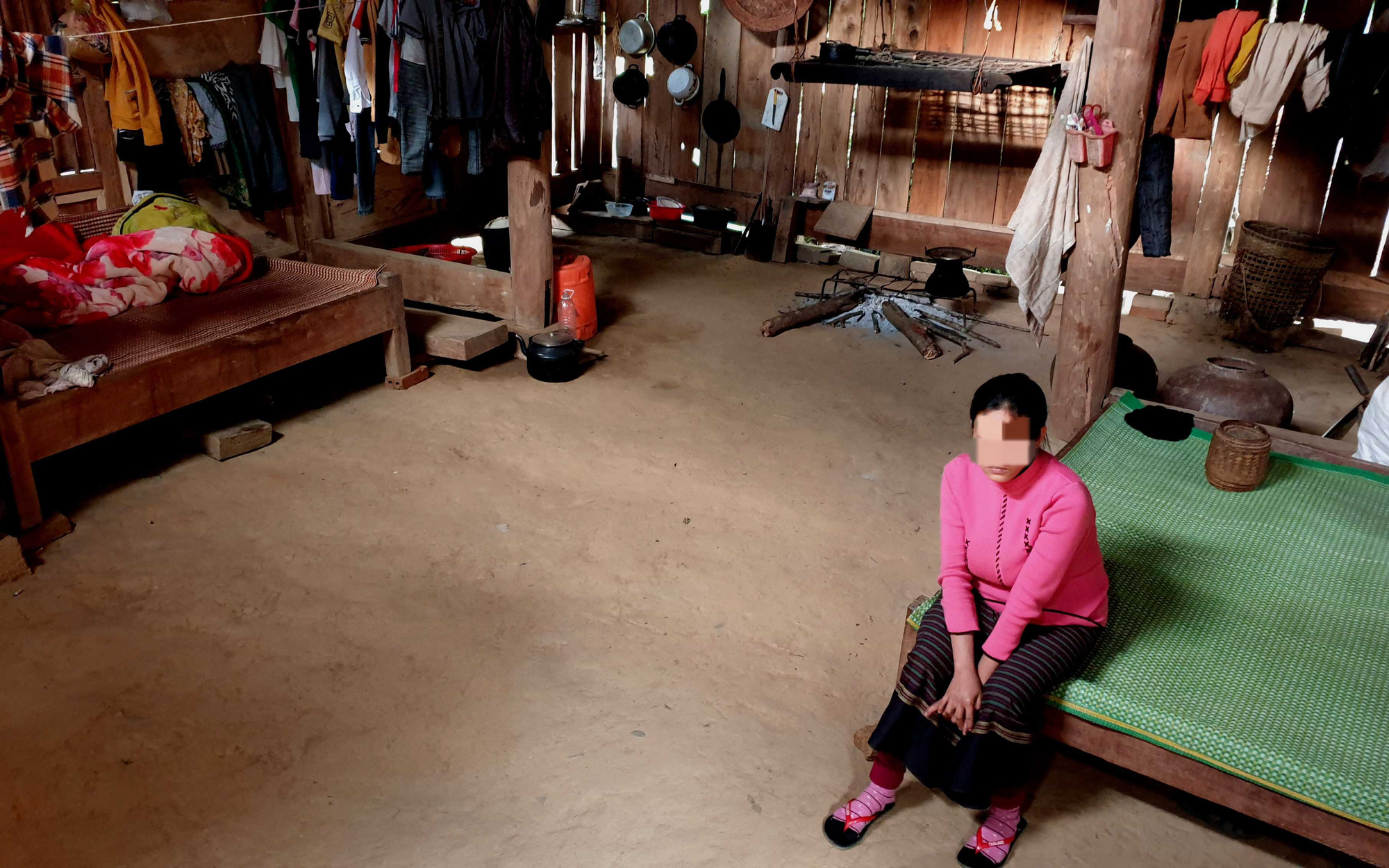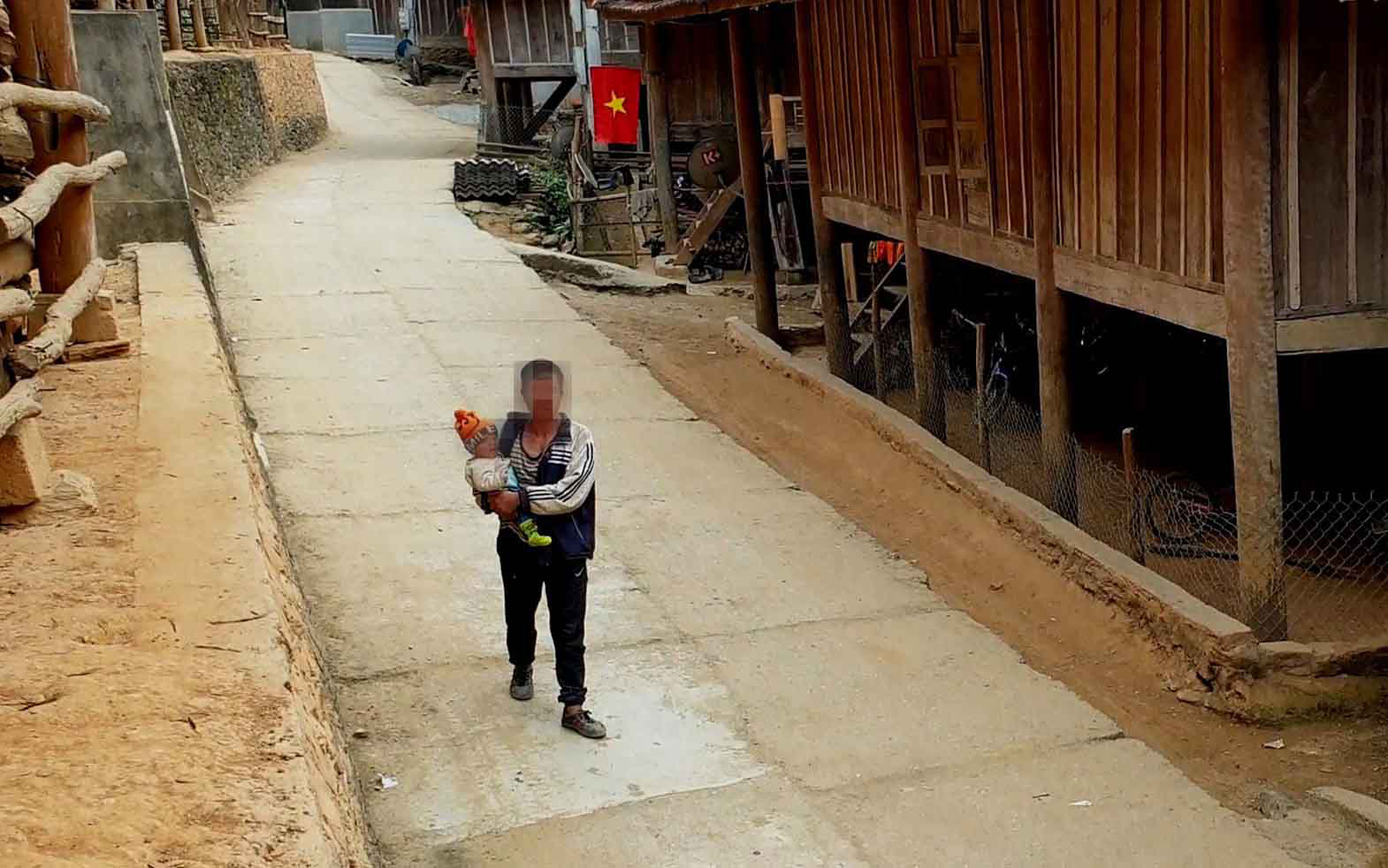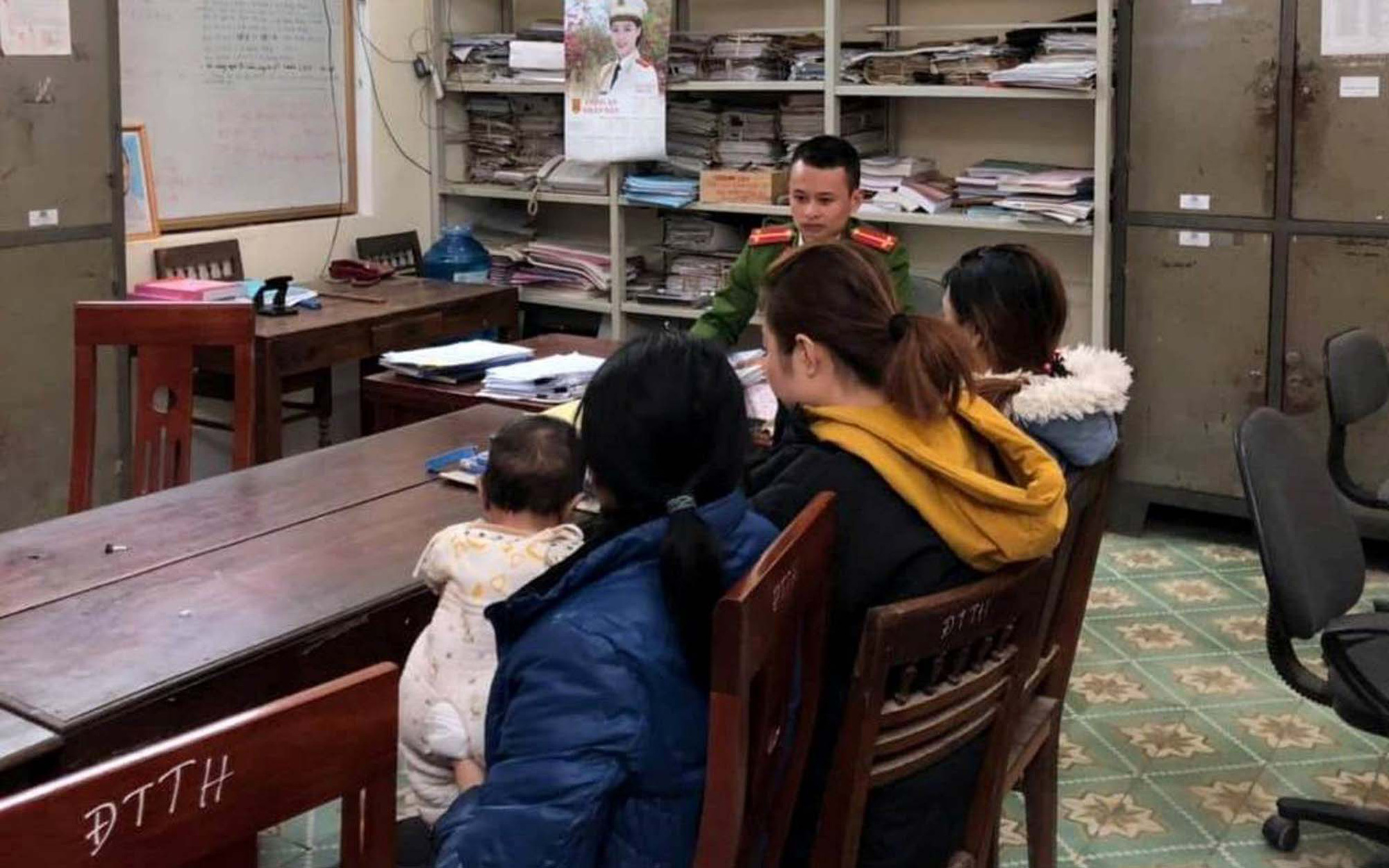Deep in Vietnam’s mountainous regions, children are often tied to a blood contract from the moment they are born. Thinly veiled as transitional adoption agencies, nefarious organizations preying on poverty-stricken women are essentially snatching babies from the hands of desperate mothers.
Lu Thi Hoa from the north-central province of Nghe An is eight months into her pregnancy. (Her real name has been changed to maintain confidentiality.)
The baby will be Hoa’s second child.
When asked about her first, silence fills the air and a chord of hollowness takes control of the room.
A motorbike for a newborn? Deal.
Hoa’s Vietnamese language skills are weak as she comes from the Kho Mu ethnicity. So her story must be translated with the help of a local police officer.
Hoa was married during her adolescence to a Kho Mu man. As with many other young women in her village, she quickly found herself in an inescapable relationship with an alcoholic husband, trapped under the crushing weight of extreme poverty.
To keep her family afloat, she took on work harvesting seasonal crops, chopping bamboo, and gathering lumber. This hustle has carried on well into her first pregnancy. She simply could not afford to take a day off work.
At around the eighth month of her pregnancy, Hoa was approached by a neighbor, O., who made an offer for the baby.
“She said she would help me sell the newborn child for VND80 million [US$3,450]. My household is so poor that I felt I didn’t have a choice,” Hoa recalled.
A few days later, Hoa packed a bag and followed O. into a van headed for the Mong Cai border crossing into China.
“No one would tell me where exactly we were going. I only knew that myself and a few others were being kept in a small house in the countryside,” Hoa said.
“They provided us with food but wouldn’t allow us to leave. They took me to the hospital when I went into labor and I gave birth a few hours later.”
Hoa only had a chance to see the tiny silhouette of her newborn child before it was snatched from her hands forever. She was repatriated shortly after her delivery and handed an envelope with the promised cash.
“This is what I bought with the money,” Hoa muttered under her breath, pointing at a motorbike in front of the plywood shed where she lives.
|
|
| A woman carries a child in her arms in Dinh Son 1 Village, Huu Kiem Commune, Ky Son District, Nghe An Province, Vietnam, where infant trafficking among local ethnic Kho Mu women is common. Photo: Quoc Nam / Tuoi Tre |
‘Selling one makes no difference’
Huu Kiem Commune in Nghe An Province is home to a network of Kho Mu ethnic communities that live dispersed amongst the area’s mountainous terrain.
Life in the province’s rugged mountains has been so difficult that it has become an epicenter of infant trafficking in Vietnam, with at least 20 individuals reporting being coerced into trading their newborns for cash.
Moong Thi Lan (her real name has been changed to maintain confidentiality), a resident in Dinh Son 2 Village, is a mother of three struggling to lift her head above the country’s poverty line.
When she became pregnant last year, the idea of being able to afford another child became such a heavy burden that she began to contemplate giving the newborn away.
“I had heard that those who had sold their newborns received a huge amount of money. ‘I already have two sons, so selling the third won’t matter,’ I thought. If I raise a third, I won't be able to pay for his marriage,” she said.
Lan explained that her husband, an alcoholic, drunkenly agreed to sell the baby and the two set about looking for O., the same middlewoman who helped Hoa sell her child.
The two struck a deal to trade Lan’s newborn for VND50 million ($2,150) and Lan quickly found herself en route to China.
Now, with the money spent, Lan has returned to picking bamboo shoots and harvesting crops for local farmers.
“I honestly don’t know what I can do to put food on the table for my children,” Lan said.
Through your correspondents' series of encounters with individuals coerced into selling their newborns, money and amenities were the two most frequently cited justifications for their decision.
|
|
| A police officer collects statements from Vietnamese women found selling their newborns to China in Ky Son District, Nghe An Province, Vietnam. Photo: Nghi Xuan / Tuoi Tre |
Not everyone, however, is able to survive until they receive the money.
Lu Van Hong from Luu Tien Village learned this the hard way.
In mid-2018, Hong’s wife, Moong Thi Lam was lured into selling her unborn.
In October of that year, Hong received a call from a Chinese phone number explaining that his wife had died in a traffic accident in Hubei Province, China.
Four other Kho Mu women were also involved in the accident, though they only sustained minor injuries.
Three of them were into the later terms of their pregnancies while the fourth was Moong Thi O, the middlewoman who had been putting Kho Mu mothers in touch with the trafficking ring.
It took Hong more than a month to bring the body of his wife back to her hometown for burial.
Like us on Facebook or follow us on Twitter to get the latest news about Vietnam!




















































